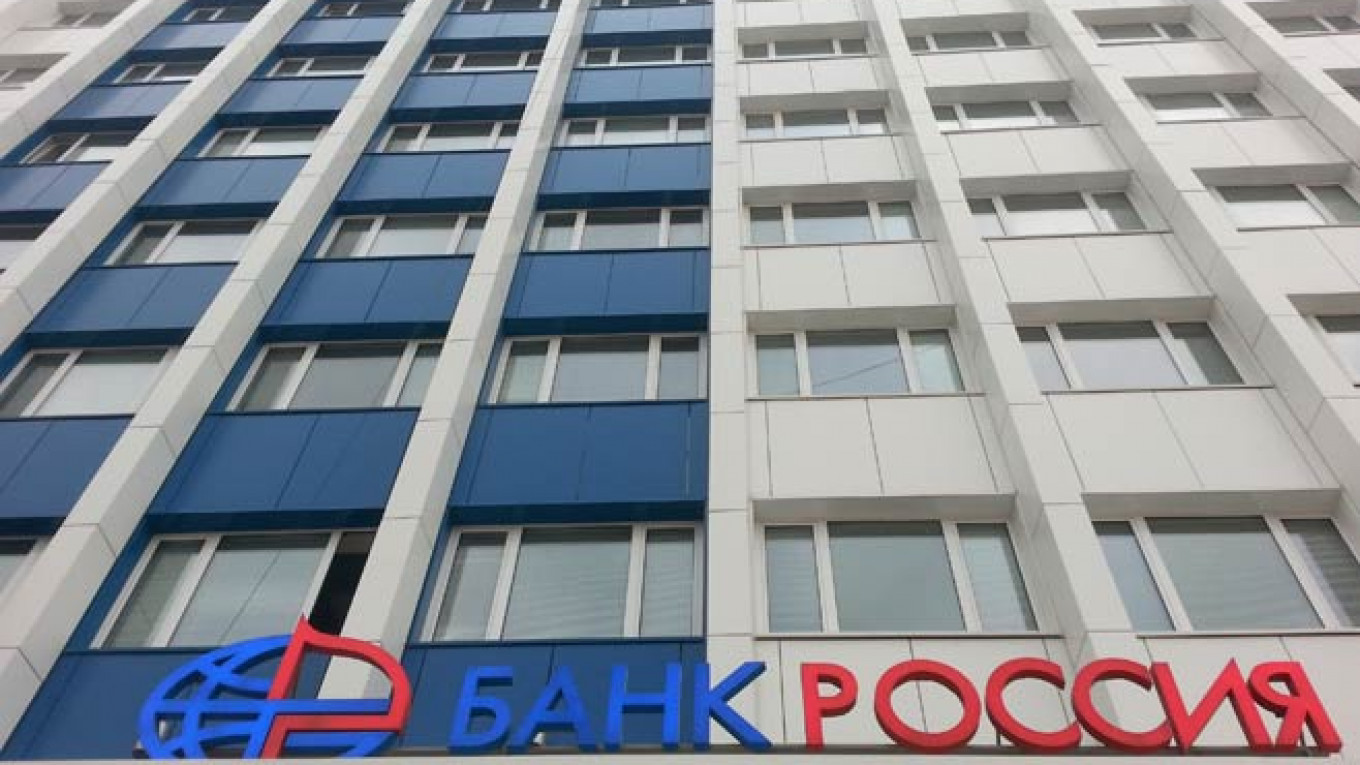correction appended:
Since its annexation from Ukraine, Crimea has been shunned by major Russian financial institutions. Bank Rossiya, the country's 15th largest, is the first big bank to enter the peninsula.
Bank Rossiya found itself in a tough position, one analyst said — blacklisted by the West for its connections with the Russian political elite, the bank was forced to retrench in Russia. Now, the very elite that it was sanctioned for being close to is pushing it into Crimea.
"Bank Rossiya has opened a representative office in Simferopol … and in the near future plans to open branches and additional offices in other Crimean towns," Bank Rossiya said in a statement published on its website Tuesday.
Ukrainian banks have been rapidly pulling out of Crimea following the region's incorporation into Russia last month. Into the vacuum have poured mostly small Russian banks unworried by the threat of foreign sanctions on their mostly domestic business.
Larger banks have shied away from Crimea, preferring to preserve their operations in mainland Ukraine and not invite upon themselves the ire of Western nations, who consider Russia's annexation of the peninsula an illegal land grab.
Bank Rossiya is by far the biggest player to expand into the region so far. On March 20 the U.S. slapped sanctions on the bank, calling it the personal bank of the Russian political elite, and labelled its co-owner, billionaire Yury Kovalchuk, a "cashier" of President Vladimir Putin. U.S. officials said the bank would be "frozen out of the dollar." On March 21, Visa and MasterCard stopped servicing the bank's payments.
In response, President Putin promised to support the bank, and on March 28 Bank Rossiya announced it would renounce foreign currencies and work only with the ruble.
Still, Bank Rossiya has kept its Crimean expansion plans quiet. On Monday, Kommersant reported that its reporters had stumbled upon a building in Crimea's administrative capital, Simferopol, adorned with a sign reading "Bank 'Rossiya" and a firmly closed door. A representative of the bank said via the intercom system that the office would open in two weeks.
Operators in Bank Rossiya's call center told the paper they knew nothing of the Simferopol office or Crimean expansion plans, while the bank's press center declined to comment.
Bank Rossiya has nothing to gain in Crimea, said Vasily Solodkov, head of the Banking Institute at the Higher School of Economics. The peninsula is heavily subsidized and is likely to find itself stuck in a legal and economic limbo similar to that in Abkhazia, a Georgian breakaway region that is recognized as a state by only a handful of countries and is economically dependent on Russia.
Two things are behind the bank's expansion, he said: First, as Bank Rossiya has already been forced out of the international financial system, it has nothing to lose by entering Crimea. Second, President Putin is likely strong-arming the bank into opening on the peninsula.
The Kremlin employed similar methods in the run-up to the 2014 Sochi Olympics, when wealthy businessmen were invited to invest in multi-billion dollar Olympic infrastructure projects.
Bank Rossiya did not respond to questions on Tuesday.
Not everyone agreed that Bank Rossiya had nothing left to lose. "Sanctions have so far been placed only on the bank and its co-owner Yury Kovalchuk, but the decision to operate on territory that Ukraine considers occupied could result in a widening of those sanctions," a source in the banking industry told Kommersant.
Last week, Bank Rossiya was given the right to process payments on the domestic wholesale electricity market, which will allow it to earn an estimated 4 billion rubles ($111 million) per year from commissions.
Correction: An earlier version of this article incorrectly said that Visa and Mastercard resumed payment services for Bank Rossiya after blocking the bank on March 21. In fact, Visa and Mastercard did not resume services.
Contact the author at p.hobson@imedia.ru
A Message from The Moscow Times:
Dear readers,
We are facing unprecedented challenges. Russia's Prosecutor General's Office has designated The Moscow Times as an "undesirable" organization, criminalizing our work and putting our staff at risk of prosecution. This follows our earlier unjust labeling as a "foreign agent."
These actions are direct attempts to silence independent journalism in Russia. The authorities claim our work "discredits the decisions of the Russian leadership." We see things differently: we strive to provide accurate, unbiased reporting on Russia.
We, the journalists of The Moscow Times, refuse to be silenced. But to continue our work, we need your help.
Your support, no matter how small, makes a world of difference. If you can, please support us monthly starting from just $2. It's quick to set up, and every contribution makes a significant impact.
By supporting The Moscow Times, you're defending open, independent journalism in the face of repression. Thank you for standing with us.
Remind me later.






